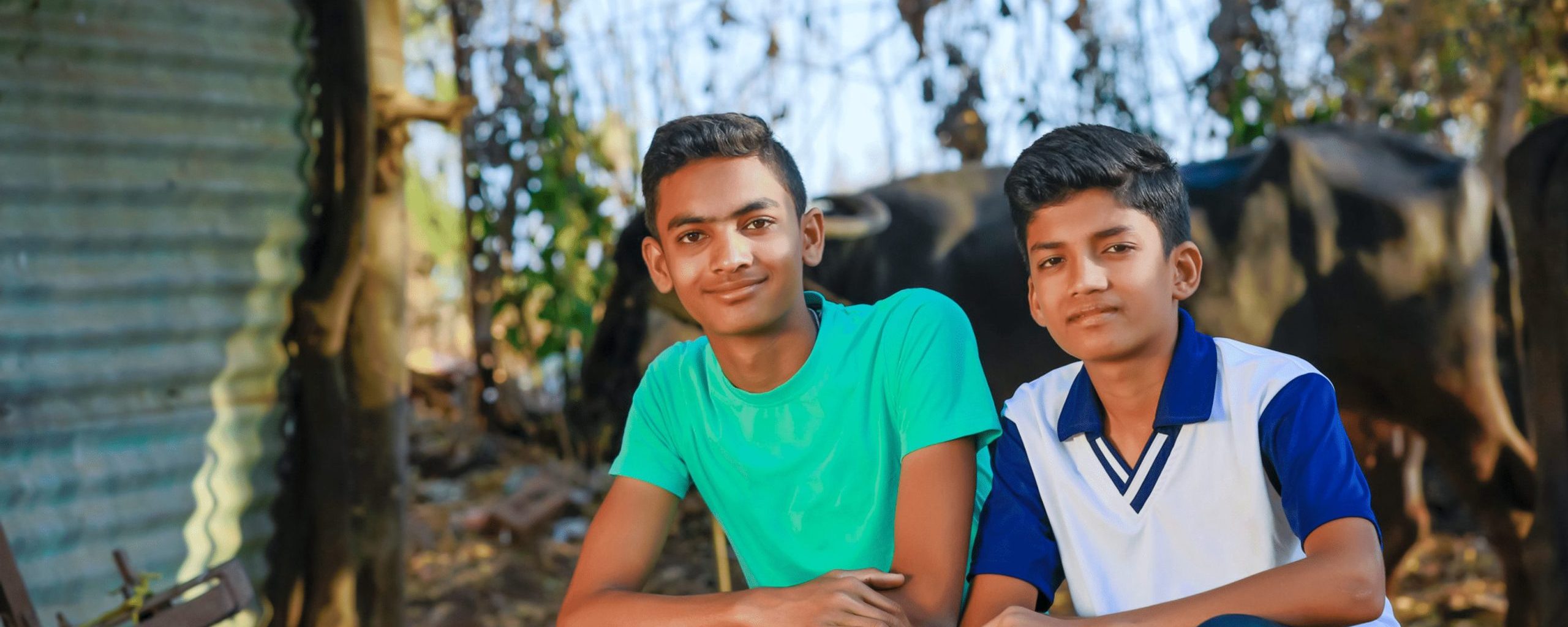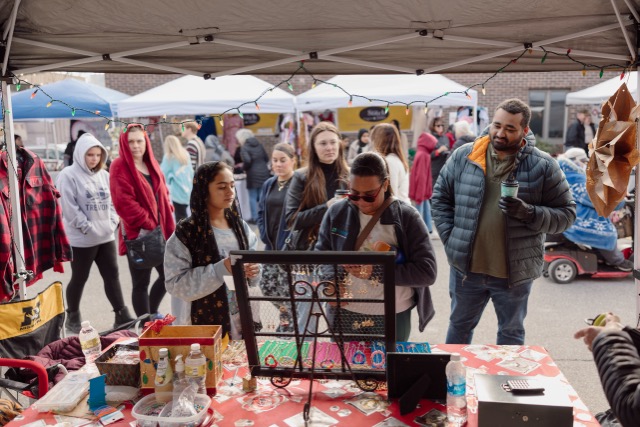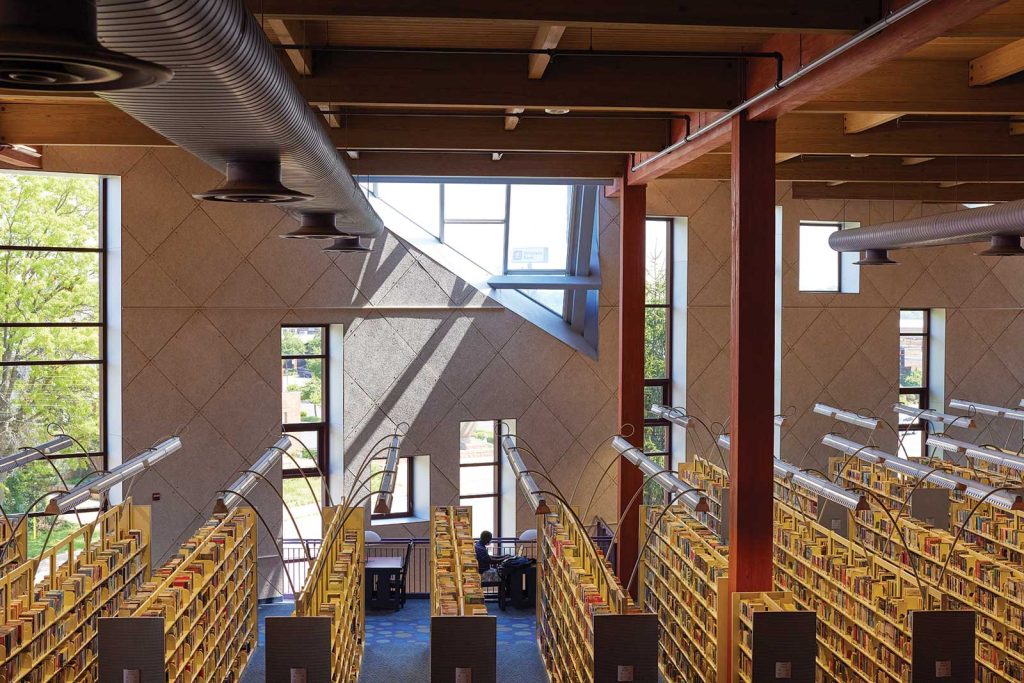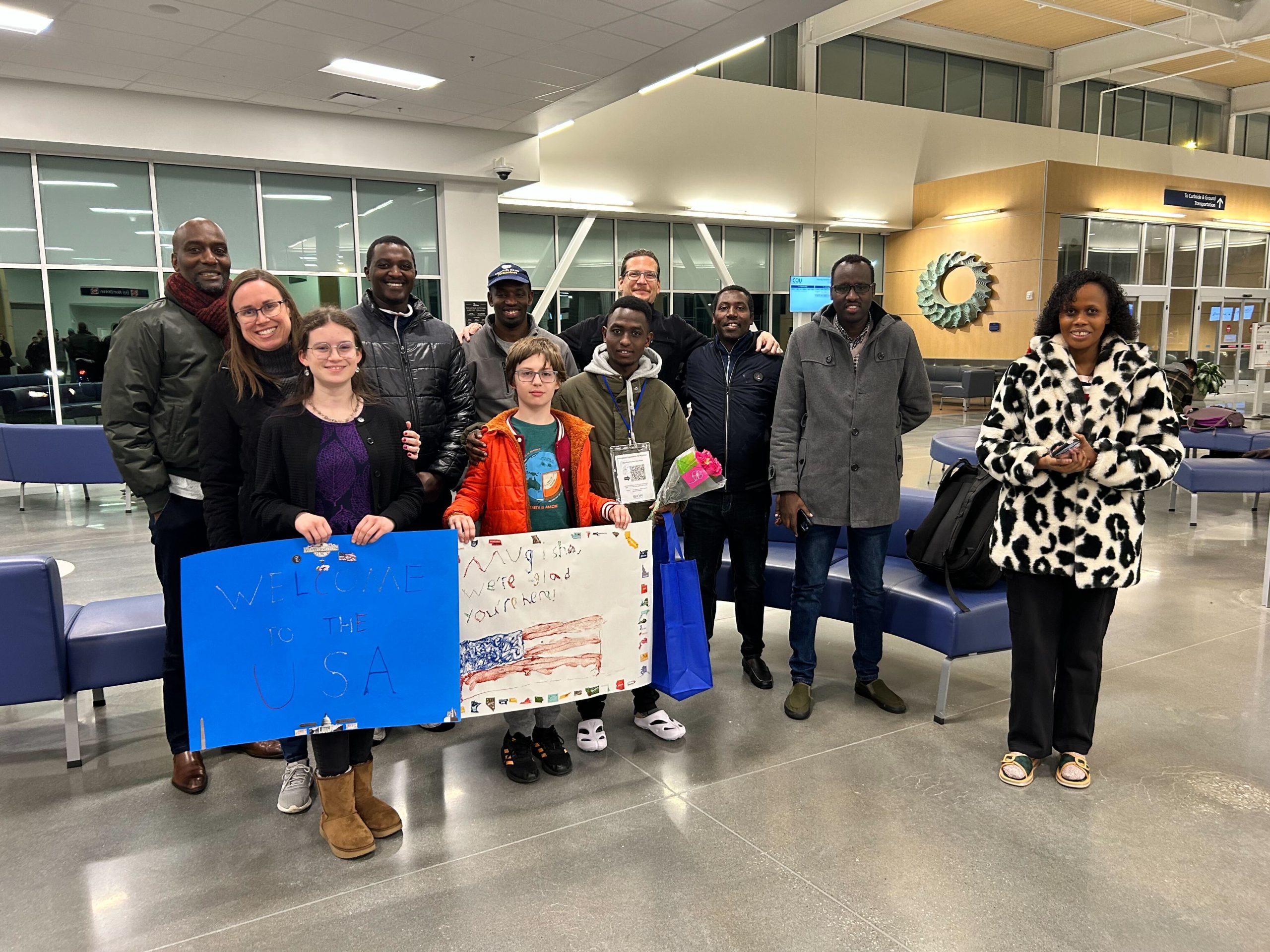
This is a long story… over three years long.
But I want to share it all with you because it has been a life-changing experience for me, and for the people I’ve been connected to through City of Refuge. This winter marks a year for me as the coordinator of our Buddy Program. Every time I meet a new volunteer, the first thing I tell them is that I’ve been a volunteer in the program for over three years. This role is still the one that I think of first when I consider my relationship with this incredible organization.
In September of 2021, I was motivated both by my desire to be useful and by wanting to make more connections myself, especially then at the back-end of Covid driving so much of day-to-day life. I filled out an application to be an English Buddy and met with Leah, who at the time was the coordinator for the program. We met for an orientation and then I waited anxiously to be matched with someone. I heard back the next month that I was to be paired with Eric Bisetsa, a Congolese man. I didn’t know anything about Congolese culture and had no idea what to expect.
I was nervous going out to meet Eric. I had no training in teaching English to foreign adults, but was hoping I could at least give him a little weekly practice. Chloe, an intern volunteer, drove out with me that first meeting. I wish I could say Eric opened the door and I immediately felt more confident and connected, but it was the opposite. The apartment was dark, and Eric was as nervous as I was. We sat down on the couch and Chloe tried to facilitate some conversation, but it was challenging, and after a few minutes she left.
Eric is just a few years younger than me, and from what I could gather he had only been in the country a few months. His wife and daughter had been able to come years before. He was from the DRC but had been living in Kenya while waiting for his turn at refugee admissions. He had very little English, but had a small hand-written book full of vocabulary words he was working on with their translations into his language (Kinyarwanda). We were so shy and awkward together.
The first several weeks slowly went along like this:
I would come, we’d sit with some simple books and a white-board, and practice words. We would try to talk about things like weather, children, jobs, but more often than not we struggled with these conversations. During one of them, one of us was trying to make ourselves understood, and failing, we both suddenly, spontaneously, started laughing. I was laughing at our inability to communicate, but also about the strange and miraculous nature of our meeting, halfway across the world from where he was born. I think his laughter also contained some of this.
Over the coming months we grew more comfortable with each other. He was more willing to take risks to express himself, I was more attuned to specific areas I could help him with and found methods that seemed to work for him. I helped him do things like change smoke alarms, understand why his utility bills were suddenly high (understandably he liked it WARM in his home in the winter!), and put air in his tires. In the spring I took him to Rock Bridge State park and we started forming our new rhythm together. I would pick him up, we would talk about our weeks in the car, we would talk and practice general conversation while walking up to the top of the trail, and there we would sit and Eric would practice reading aloud, we would study citizenship questions, or go over materials in a language program on his phone.
With this new rhythm our mutual comfort eventually led to real friendship. Eric learned all about my family and background, and he learned about mine. We talked extensively, if with difficulty, about things like cultural differences (“Why do Americans have so many pets and so few children? No good!”) and national histories. It’s fun looking back and remembering the same conversations repeating every year, but each time with more and more confident English! I got to know Eric’s family and he met mine. When either of us went on a vacation we’d send pictures. Eric went back to Africa to visit his family for 6 weeks and regularly messaged me that he missed his weekly meetings with me, and sent pictures of his family members. This is the first part of the story. Eric and I are friends. When he gets his citizenship (next year!) and has perfect English and doesn’t need me for anything, we will remain friends.
The other part of the story started a year ago.
Eric told me his nephew, Mugisha, wanted to try to come to the United States to go to college, and asked if I could help him figure out how to make this happen. Mugisha completed high school in Kenya and had great English and good grades, but as a Congolese refugee it was hard for him to go to college in Kenya. He had limited rights and opportunities despite his skills and readiness to contribute. I looked into the options at our local colleges and learned that Moberly Area Community College could be a good fit, and that they would be able to offer him a legal status where he could study here.
I talked with Mughisha on the phone several times and learned more about him. His father had been killed many years before, and he lived with four siblings and his mother. He wanted to get a job in healthcare eventually and would like to join his Uncle Eric, who he was close with, here permanently. I helped him apply to MACC and we were both delighted to find that the counselors there understood the situation well. Mugisha was admitted to the college and they were set to begin preparing the documents so he could be admitted to the country. He was planning on coming to start in the summer semester.
This was last December. Just after New Year’s I read that the federal Welcome Corps program was available for US Citizens and permanent residents to sponsor specific refugees that they knew to come to America through the refugee admissions program. This would allow them to obtain permanent resident status with a clear path to citizenship. I called Mugisha that day and asked if he’d be interested in putting his college admission on hold so we could explore the possibility of sponsoring him via Welcome Corps. He enthusiastically agreed to this, as a chance at permanent legal status was very exciting. Eric also agreed with this plan, so I set about learning about the program.
We needed a group of five people for the sponsorship team.
I was to be the team leader, and of course Eric was #2. My wife agreed to join us, and I asked two friends who quickly agreed. Over the course of a month I obtained all sorts of documents from Mugisha, and also learned more about his story, which needed to be shared with Welcome Corps. We completed the application by the end of the month. We had no idea if it would work or how long things would take. Nearly every week Eric would ask me if I heard updates.
It is a big thing to feel responsible for a major development in someone else’s life. I often worried that I had steered him wrong. Perhaps Welcome Corps, a new program, would either not work or would take many years. He had already gained admission to the community college here and had a path to be here through that, even if the future was unclear coming that way.
At the end of February we learned our team had been certified. At this point, Welcome Corps was no longer in control of anything. They referred the case to USRAP in Africa. And again it was radio silence. We didn’t even have anyone we could contact. Mugisha and Eric both often asked me for updates, and there was never anything I could say.
Finally – Hope!
On July 11th I got a message from Mugisha that he had gotten a call from the UN to have an initial interview the following Tuesday. This began a process of close to a dozen 3 hour bus rides from his home to Nairobi over the coming months. Health checks, interviews, orientations, and more. There was no map we knew for how all these things would go, what the timeline would be like, and what potential roadblocks might pop up, and there were a few. Mugisha and I continued to talk on the phone on occasion. We discussed his daily life and mine, and I shared pictures of different things I saw in Columbia. Finally on October 18th I got a Welcome Corps email asking to confirm that I was available the evening of Nov. 21 to pick Mugisha up from the airport.
The last stage consisted of him finishing final checks in Kenya while I learned in more detail about the various forms I’d need to help him with upon his arrival.I won’t ever forget picking Mugisha up at the airport. He had been travelling for 36 hours, and had never been on a plane before!. I brought him and Eric back to Eric’s apartment late that evening where I sat at the table and ate many traditional Congolese dishes with Mugisha, Eric, and a few other people from their community here, many of whom I have become friends with over these years at City of Refuge.
Driving home, close to 2 AM, I reflected on all that has come from meeting Eric all those years ago and how much my life has been enriched through these relationships. A few days later I drove Mugisha around Columbia, showing him some of my favorite spots. He kept remarking how beautiful things are here. The buildings, the trees, the streets.
I am so glad that Columbia is a City of Refuge.
Aaron Finkel
Community Partner Coordinator

Help us tell more stories like Aaron’s. Give Now to CoMoGives so that we can continue to love our neighbors well; so that we can continue to be a City of Refuge.
